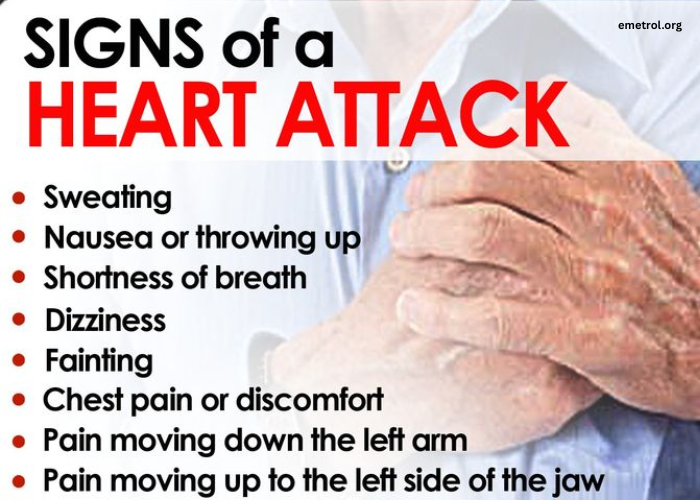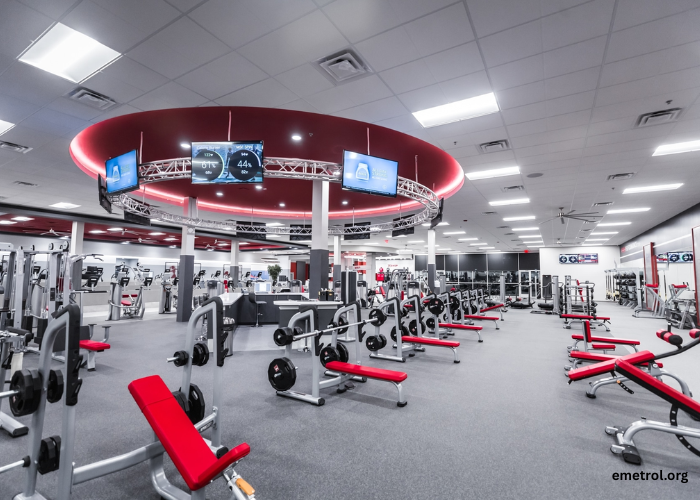When the majority of people experience chest pain it’s the first thing they think of as a heart disease or heart attack. This is not surprising, given that chest pain is frequently associated with heart problems. But one other common cause of chest pain is frequently overlooked: anxiety. 1.) It feel really scary Many people with anxiety or panic attacks experience chest pain and it is one of the most intense and terrifying symptoms. That can be surprising and a little scary because it feels so much like heart pain.
Anxiety isn’t merely “in the head.” It turns on the body in its entirety, particularly when stress hormones, such as adrenaline, are amped up. When your body is in “fight-or-flight” mode, your heart rate quickens, your breathing changes, and your muscles tense. This physiological reaction can create tightness in the chest.
The good news is that chest pain related to anxiety is rarely life-threatening, but it can still cause you to needlessly focus on the cardiac reasons for the pain, instead of dealing with the stress that is directly causing it. In this article, we’re going to talk about the connection between anxiety and chest pain, what it feels like, how it differs from heart chest pain, and what you can do to find relief.
Key Points:
Chest pain that feels like heart problems may actually be anxiety.
A lot of chest discomfort is related to stress hormones and muscle tension.
And knowing that distinction makes it possible to have less fear and be more skillful in managing symptoms.
What Does Anxiety Chest Pain Feel Like?
Chest pain from anxiety can be so scary and feel so real. It’s often described as a sharp, stabbing pain, a dull ache, or a sense of tightness somewhere in the chest. On some occasions it strikes without warning in the midst of a panic attack, while for others, it lingers, smolders even, a quiet undercurrent of constant tension and worry.
And unlike heart-related pain, chest pain caused by anxiety may fluctuate in intensity (and even location) as your posture, your breathing, or your stress levels change. If, for example, you are in a very stressful meeting, you might feel your chest muscles tighten, though the pain might then recede as you leave and relax. That sets it apart from heart attack pain, which generally does not get better with relaxation.
Another key difference is duration. Pain from anxiety that comes on suddenly may last for only a few minutes, but can persist for a few hours on a particularly difficult or stressful day. It may also be accompanied by symptoms such as shortness of breath, dizziness, sweating, tingling in the arms and racing heart. In combination, they can inspire fears that something grave is wrong with your heart.
At a Glance Table: Anxiety Chest Pain and Chest Pain of the Heart
| Feature | Anxiety Chest Pain | Heart-Related Chest Pain |
|---|---|---|
| Onset | Sudden, often during stress/panic | Abrupt, sometimes with activity or at rest |
| Duration | Minutes to hours | Often more than 15 minutes |
| Sensation | Sharp, stabbing, or tight | Heavy, squeezing, crushing |
| Relief | Eases with relaxation, deep breathing | Rarely improves without medical help |
| Other Symptoms | Lightheadedness, sweating, tingling, shortness of breath | Nausea, sweating, radiating pain to jaw/arm |
Note: Always seek medical attention if you’re unsure whether chest pain is due to anxiety or a heart condition.
Why Does Anxiety Give You Chest Pain?
Anxiety chest pain occurs when the body reacts to stress. Your brain sends chemical messengers to ready the body to defend itself. This triggers the “fight or flight” reaction. Stress hormones, including adrenaline, surge through the body, creating sudden shifts.
First, your heart beats faster to pump more blood to muscles. This causes your chest to become tight or uncomfortable. Second, your breath becomes faster and shallower, which decreases the amount of oxygen you take in, and can make the muscles in your chest cramp. And, third, anxiety tends to automatically tense up muscles, often the chest muscles, without you even realizing it. As time goes on, this stretch can become painful.
Suppose you are behind the wheel in traffic and your heart begins to race, your hands sweat and your chest feels tight. You’re not having a heart attack, but your body behaves as if you are. This is a distinct case of anxiety leading to legitimate physical pain.
Chest Pain: Physical Effects of Anxiety in the Body Side-by-Side Comparison Chart
| Body Reaction | Effect on Chest |
|---|---|
| Increased heart rate | Feels like pounding or pressure |
| Shallow breathing | Creates tightness and discomfort |
| Muscle tension | Aching or stabbing pain |
| Stress hormone release | Heightened sensitivity to pain |
Reminder: Anxiety chest pain is not lethal in and of itself, but if it is a frequent occurrence, it should not be ignored.
How To Differentiate Between Anxiety Chest Pain And Heart Problems?
It’s one of the most fundamental questions, because the threat of a heart attack is what adds considerable oomph to the feeling of anxiety chest pain. Only a doctor can provide a definitive answer, but there are several clues to look for to help distinguish the two.
Chest pain anxiety Most of the time, chest pain from anxiety is stress-related and may even be experienced during anxiety or panic. Let’s say you’re worried about a job interview and suddenly you feel a tightness in your chest, it’s probably related to anxiety. Conversely, were chest pain to come on during physical activity, such as when climbing stairs, and is not relieved by rest, it could be related to the heart.
Pain in the heart can often feel like pressure or a squeezing sensation and can radiate down an arm, to the jaw or to the back, while anxiety pain may stay in one spot and may feel sharp. Another distinction: Heart pain generally doesn’t get any better with deep breathing, whereas pain from anxiety often does.
But for sure, it’s always better not to take chances. If you have a risk factor for heart disease, like high blood pressure, smoking, or diabetes, you should never dismiss chest pain as just anxiety. It’s always better to consult a doctor and be safe.
Is It Possible To Treat And Regulate Anxiety Chest Pain?
Yes, you can deal with chest pain caused by anxiety, and the best treatment is to treat the underlying anxiety in the first place. Some strategies include:
Deep Breathing: Slowing down your breath will have a calming effect on your nervous system and decrease tightness in your chest.
PMPG: (Progressive Muscle Relaxation Group): Contracting and relaxing muscles helps to lessen strain of muscles in the chest.
Therapy (CBT): Cognitive Behavioral Therapy helps individuals manage anxious thoughts, which manifest into bodily symptoms.
Changes in Lifestyle We know that regular physical exercise, sleeping well and eating a healthy diet decrease anxiety.
Medication: In some instances, a doctor may prescribe anti-anxiety medication.
For instance, a person who experiences panic attacks at work might find it helpful to practicing dealing with stressors in the early stages of panic attacks through breathing exercises or therapy sessions. This helps to prevent the possibility of chest pain.
Conclusion
So, does anxiety cause chest pain? The answer is yes. Anxiety is a strong feeling that doesn’t just effect the mind but the body as well. Chest Pain is one among its most common and most terrifying symptoms. While it may feel like a heart issue, anxiety chest pain has its own set of symptoms and can be treated with relaxation strategies, therapy, and a few lifestyle changes.
It is important to know the difference between anxiety chest pain and heart-related chest pain, as understanding your symptoms can mean the difference between a quiet night at home and time spent in the emergency room. The more you understand about how your body reacts to stress, the more you can control your health and peace of mind.
FAQ’s
Can anxiety chest pain last for days?
Yes, anxiety chest pain can be constant, but it can also come and go.
How does chest pain from anxiety compare to a heart attack?
Yes, it can be very similar, and that is why many men and women confuse it with heart pain.
Does chest pain caused by anxiety go away on its own?
Sometimes it does, particularly if the anxiety abates, but relaxation exercises can help expedite recovery.
At what point do I need to go to the hospital for chest pain?
If you’re not sure whether your symptom stems from anxiety or a heart problem, consult a health care professional.
Are there any lifestyle modifications to prevent anxiety chest pain?
Yes, exercise, sleep and stress management help depression symptoms, too, and can also reduce anxiety symptoms such as chest pain.



